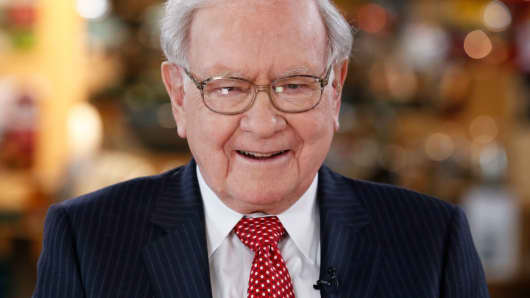Warren Buffett has wagered $1 million for charity that he can achieve better investment returns than a group of hedge fund managers by simply investing in an S&P 500 passive index fund. That bet will be decided this year, and it looks likely Mr. Buffett will collect.
Mr. Buffett is correct: there are far too many mediocre and expensive funds that shortchange investors. I support his commitment to low cost, simple investments that should be bought and held for the long term. Mr. Buffett's approach of bottom-up investing – rigorously analyzing companies and building a durable portfolio – has proved itself over many decades. And no one's been better at delivering the message that Americans need to save more for retirement -- and to get invested and stay invested.
In his recent annual shareholder letter, Mr. Buffett offers some wisdom based on his years of investing. Let me humbly add my perspective.
First, as is true in many industries, consumers should be wary of product labels. The "active versus passive" debate is an intra-industry argument that does not serve investors. Many mutual funds provide mediocre or poor long-run returns, in part because of high management fees and excessive trading. At the same time, the volatility risks and opportunity costs of passive index investments are typically underestimated or unknown. It's not about active or passive. It's about delivering good long-term investment returns - and low costs are a key component of those returns.
It's also time to challenge the notion that passive index returns are the safe path to a better retirement. Index funds have their place, but they provide no cushion against down markets. Despite trillions of dollars that have flowed into passive investments, only half of the more than 1200 investors we surveyed online last year were aware that index funds expose them to 100 percent of the volatility and losses during market downturns.


